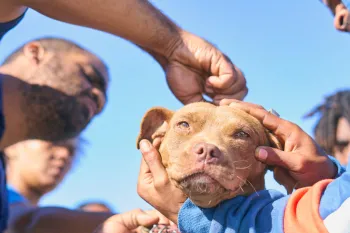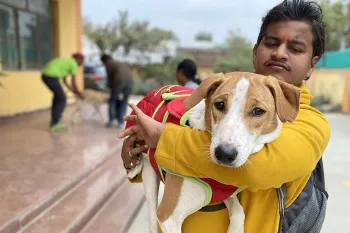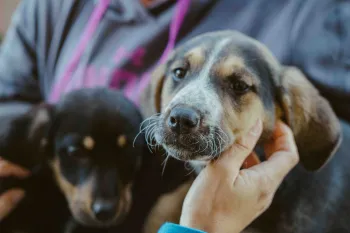The deep connection between people and animals is universal. However, access to the resources necessary to provide animals with the health and wellness they deserve is not. In truly humane communities, everyone can obtain what they need for their animals. This vision is what we are trying to support in communities all over the world. Here, Dr. Katherine Polak, a veterinarian and vice president of international companion animals and engagement here at Humane World for Animals, describes what she saw at our special program in South Africa.
I still remember my first visit to one of South Africa’s informal settlements. South Africa is a land of striking contrasts—where jagged coastlines meet golden savannahs, and vibrant cities rise against the backdrop of soaring mountains. Its natural beauty is world-renowned, yet beyond these landscapes lie communities navigating deep economic challenges. In informal settlements—which are neglected by the larger infrastructure and where roads remain unpaved and access to electricity, clean water and veterinary care remains limited—I witnessed not despair, but resilience. Families, despite daily struggles, show extraordinary devotion to their pets. It was here—in these strong, loving communities—that I saw the truest heart of South Africa, and the urgent need for continued support.
Two years later, I returned to visit the Healthy Pets, Healthier Communities program. Since its launch in 2022, the progress has been remarkable. Seeing the tangible impact, animals receiving care, community members engaged and empowered, reinforced something I’ve witnessed time and again: When we invest in animal welfare, we lift up entire communities.
This initiative, led by Humane World for Animals South Africa, is transforming the lives of both people and animals by providing essential veterinary services in underserved areas. But it’s doing more than that; it’s creating a model for rethinking how local municipalities can support their communities’ companion animals, shaping policies that value the everyday lived experiences of these animals.
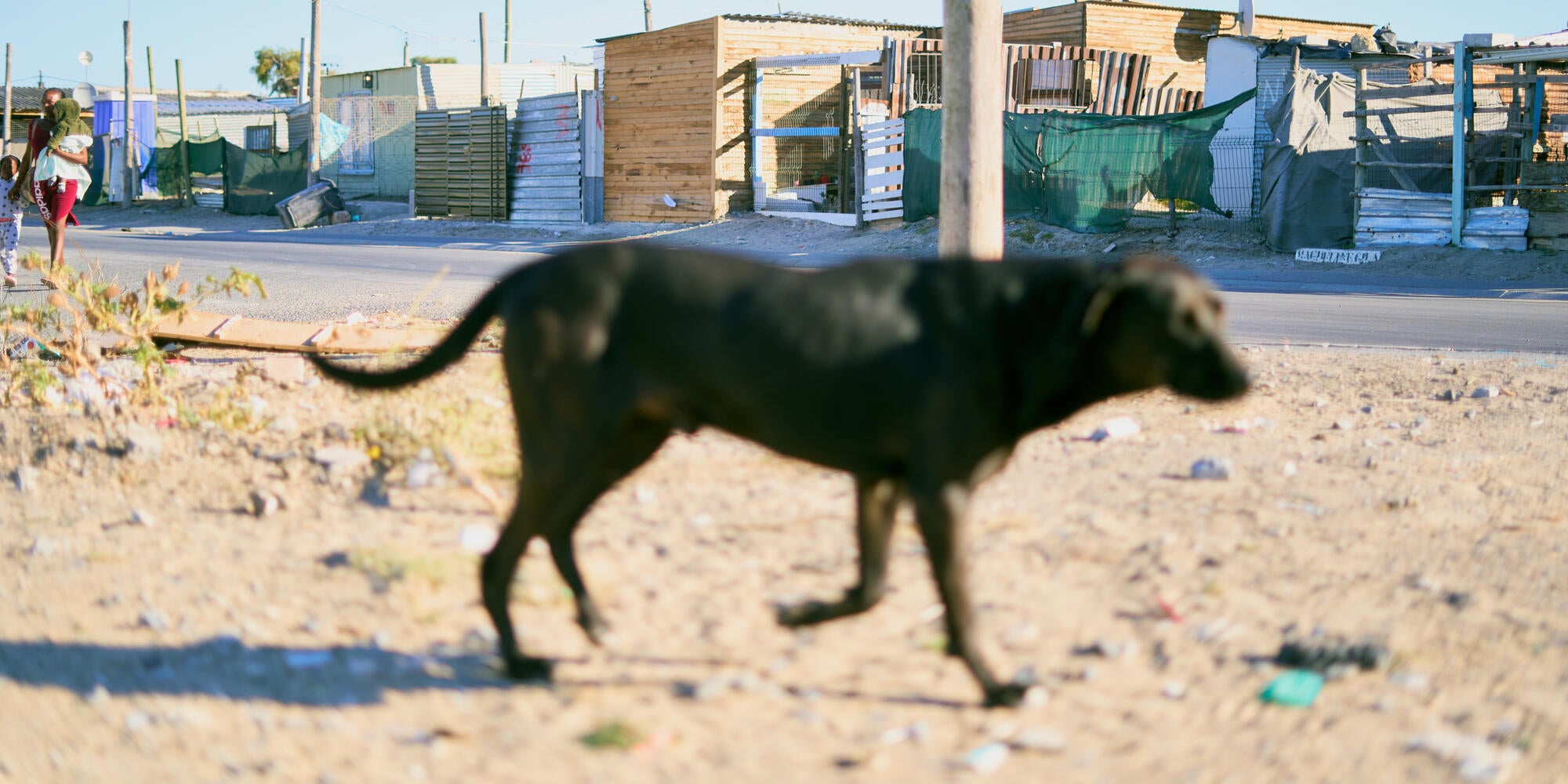
Health Media Projects
Bridging the gap in veterinary care
In many parts of South Africa, affordable veterinary services are nearly nonexistent, particularly in townships and rural areas where systemic poverty and inequality persist. South Africa remains the most economically unequal country in the world, according to the World Bank, and many township residents live in informal settlements without consistent access to clean water, electricity or health care, let alone veterinary services for their pets.
The Healthy Pets, Healthier Communities program, launched in 2022, directly addresses this gap by offering free spay/neuter surgeries, vaccinations and parasite control. But its impact goes beyond medical care. By working closely with municipal governments, local animal welfare groups and community members, the program is building a collaborative framework that cities and towns across South Africa can adopt to improve animal welfare in a lasting, systemic way.
A scalable model for South African municipalities
Starting in the southernmost tip of Africa, the program began in Struisbaai North and Bredasdorp East within the Cape Agulhas Municipality. It has since expanded to the towns of Napier, Elim and Macassar, a suburb to the east of Cape Town. The approach is multifaceted, combining direct veterinary services with humane education, municipal bylaw reform and community engagement. This holistic strategy not only improves individual animal welfare but also helps municipalities develop long-term solutions to manage animal populations in a humane way and prevent zoonotic disease outbreaks, such as rabies, a continuing concern.
The program's results speak for themselves. In 2024 alone, Healthy Pets, Healthier Communities provided care to 3,774 animals, including 1,213 spay/neuter surgeries. In five towns—Struisbaai North, Bredasdorp East, Arniston, Napier and Elim—over 80% of dogs have been sterilized, demonstrating the effectiveness of this targeted intervention. The initiative has also expanded to Macassar, a suburb located in the east of the broader Cape Town metro area, where it will reach nearly 4,000 animals by the end of 2025. Behind every number is a story of impact: a once-itching dog now free of fleas; a beloved cat vaccinated against disease; and a community healthier, safer and more connected because of the human-animal bond.
The power of community engagement
One of the most transformative aspects of this program is its commitment to engagement and relationship building. Our team works directly with community members to build awareness of disease prevention, the needs of companion animals and the benefits of sterilization. Something as simple as flea treatment can make a profound difference, not just in the animal’s health, but in how they are perceived and cared for by their families.
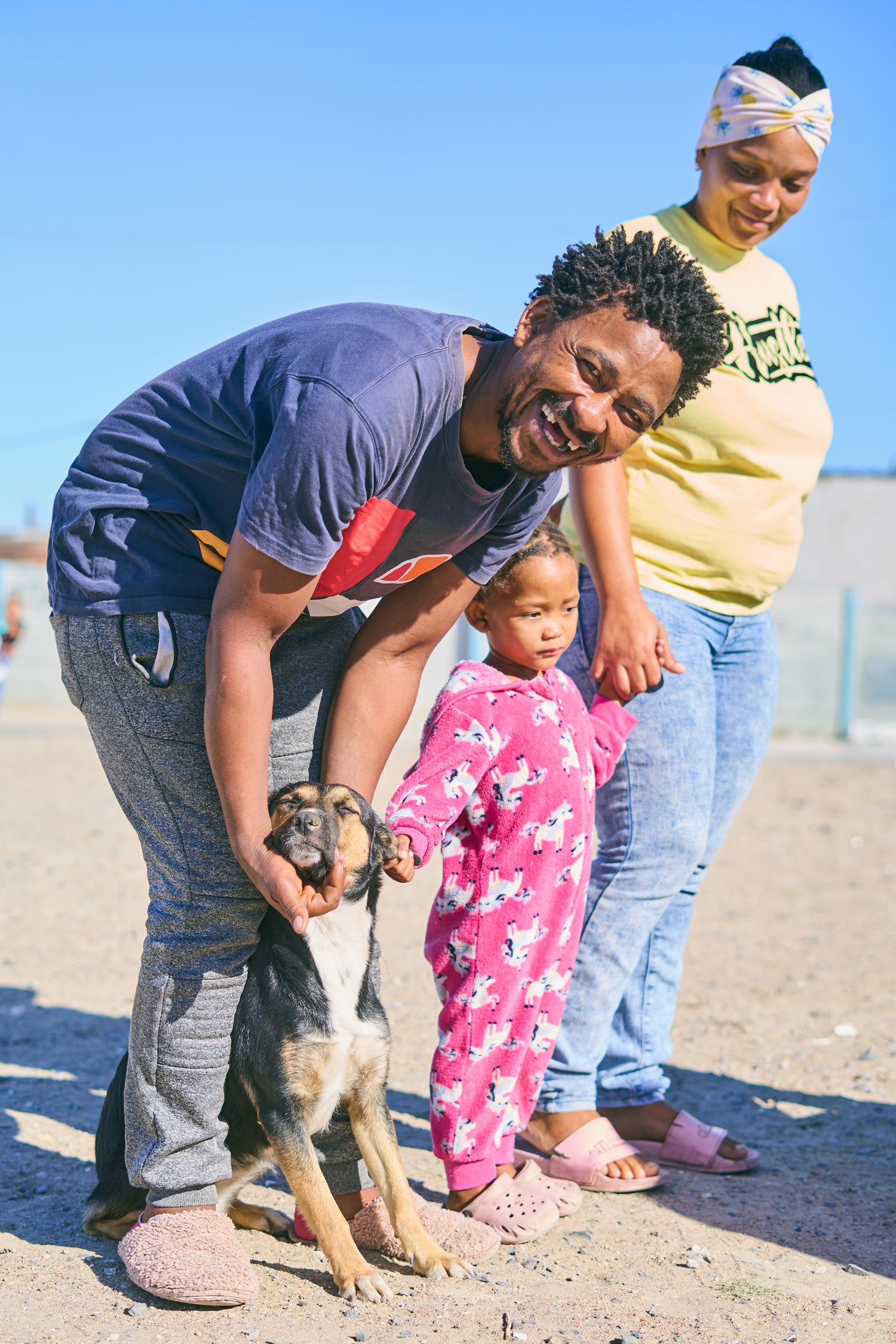
Health Media Projects
I spoke with several people who shared how access to veterinary care has changed their pets’ health and, by extension, their own well-being. In communities where dogs and cats are valued companions and family members, ensuring their health strengthens the human-animal bond and reinforces the importance of good animal care practices.
Meeting people where they are
During my visit, I witnessed firsthand the impact of an Animal Health Day, a mobile veterinary event that brings essential services directly to the heart of communities. Under the shade of a pop-up tent, a line of people stretched down the road, patiently waiting their turn with their pets. Some carried their animals in boxes or wrapped in blankets; others held them on makeshift leashes of rope or twine.
Each animal received a thorough checkup, vaccinations and parasite treatments. Pet food, collars and leashes were given away free of charge; these simple items can make a world of difference in improving the lives and wellbeing of animals. Nearby, a free spay/neuter clinic also sponsored by the program was in full swing, ensuring long-term population control alongside immediate medical care.
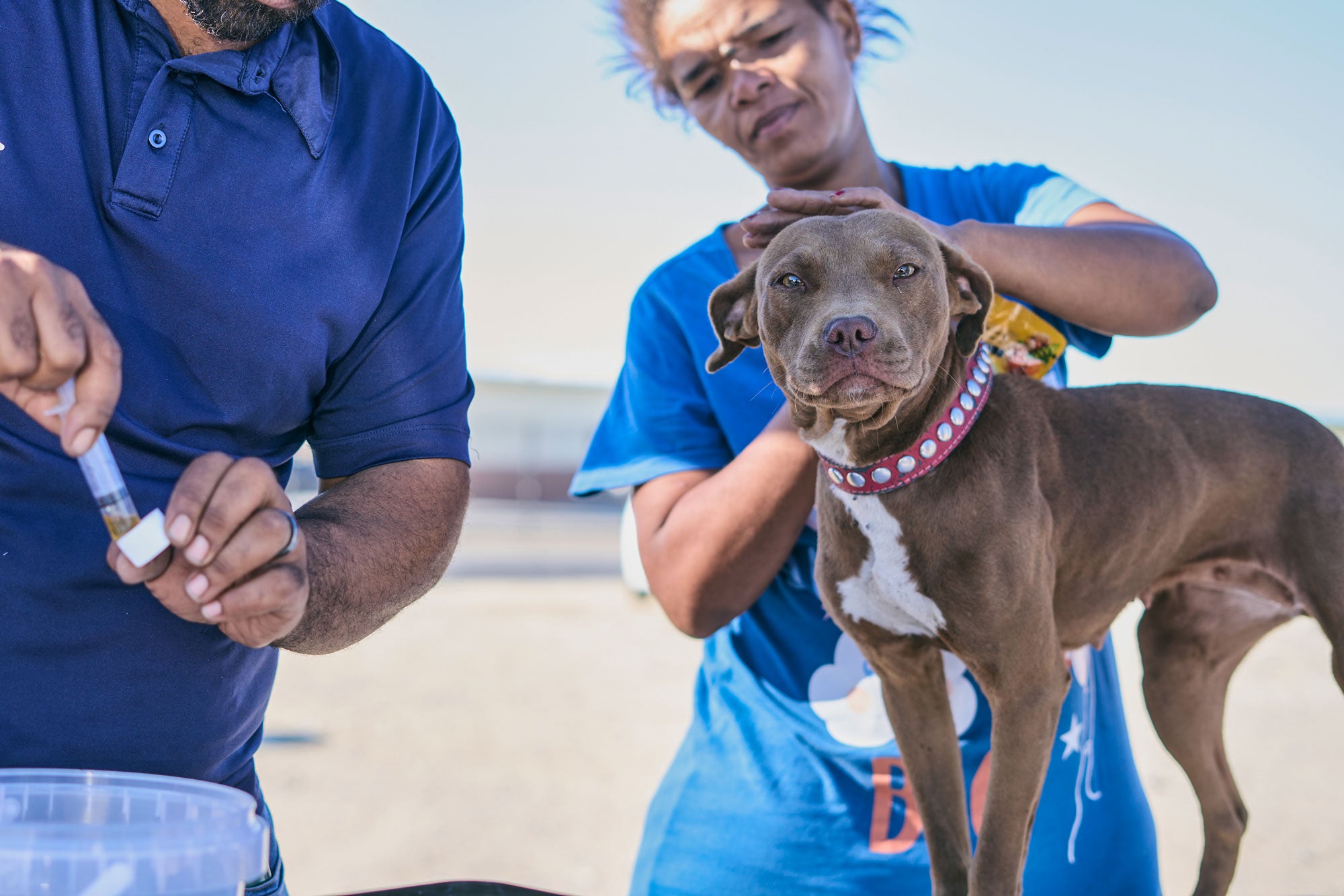
Health Media Projects
One of the most common health issues I observed was flea and tick infestations. Nearly every animal had visible signs of parasites, with some suffering from severe skin conditions caused by mites. These infestations don’t just harm animals, they affect entire households, contributing to disease transmission and discomfort for families. Addressing these issues strengthens the human-animal bond, as dogs free of fleas and ticks are more likely to be welcomed inside homes and treated as true companions rather than being left outside on chains.
A blueprint for the future of South Africa’s companion animals
Unlike traditional veterinary outreach programs, Healthy Pets, Healthier Communities is not just a short-term intervention; initiative offers a longer-lasting model for townships and municipalities across South Africa that draws on a One Health approach, which recognizes the interdependence of human, animal and environmental health.
Through monthly sterithons—high-volume spay/neuter events—as well as animal health days and strong municipal partnerships, the program addresses the root causes of animal overpopulation and disease transmission. The goal is clear: to prove that humane, community-driven animal welfare strategies are not just possible but essential for building healthier, more compassionate communities. Investing in preventative care is also a far more cost-effective approach, helping pet owners keep their animals healthy rather than relying on municipal shelters where euthanasia is often the only option.
As I left South Africa, I carried with me a deep appreciation for the work being done and a strong belief in its potential for expansion. The Healthy Pets, Healthier Communities program is proving that with the right partnerships and a community-centered approach, meaningful, lasting change is possible.
Katherine Polak is vice president of international companion animals and engagement at Humane World for Animals.
